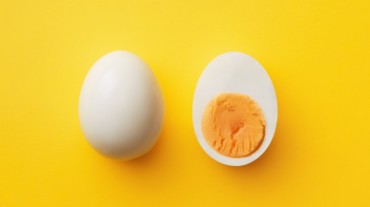
No one likes to be in the sun because of the scorching heat in summer. However, if you avoid the sun, it can result in vitamin D deficiency which can be detrimental to your overall health. So what’s the solution anyway? Well, you can fulfill your regular intake by including these vitamin D rich foods in your diet.
Vitamin D is an essential nutrient needed to regulate the calcium and phosphate in the body and keep bones, teeth, and muscles healthy. It is also important for the absorption of calcium in our bodies. And the lack of vitamin D causes bone deformities in children and bone pain in adults.

Natural sunlight exposure is the richest source of vitamin D. However; nobody wants to go outside in the scorching heat and be directly exposed to the sunlight. “Half of the world’s population does not get enough vitamin D as they mostly spend their time indoors, applying sunscreen, or eating a vitamin D deficient diet. If you are someone who doesn’t like spending time outdoors, the best alternative is to eat food that is high in vitamin D,” Dr Swathi Reddy (PT), Consultant Physiotherapist and certified diet counsellor and MIAP, Motherhood Hospitals, Bengaluru, tells Health Shots.
Fatty fish like salmon, sardines, oysters, shrimp, and mackerel are the major animal sources of vitamin D. They are not only delicious but also excellent and natural sources of vitamin D. In fact, according to Dr Reddy, the vitamin D present in fatty fish can be easily absorbed by your body as compared to plant-based vitamin D sources.
Egg yolks are other sources of vitamin D which you can consume on a regular basis as it is easy to get. People who don’t enjoy fish can eat whole eggs as they have high levels of vitamin D and are rich sources of protein. Dr Reddy said, “People avoid the yellow part of the egg (yolk) because it has saturated fats which can raise your LDL levels (bad cholesterol) in the blood. In case of any health issues egg yolk has to be taken based on dieticians’ advice. However, a good amount of minerals are found in the yolk.. Therefore, you can enjoy it without any worries.” Need not worry as there are other sources of vitamin D too.

To keep the vitamin D level up in the summer, you can also consume mushrooms. Mushrooms are a must-have source of vitamin D for vegetarians. Wild mushrooms that grow in the natural sunlight have higher vitamin D levels as they synthesize vitamin D like our body does. Commercially grown mushrooms are often grown in darker environments and have a lesser amount of vitamin D in them. However, both can be enjoyed to fulfill the daily amount of vitamin D.
Also, read: Is sunlight exposure enough for your vitamin D needs?
Cod liver oil contains 75 percent of a person’s recommended daily allowance of vitamin D. It should be your next best food for vitamin D consumption.
In fact, cod liver oil is another popular vitamin D supplement for people who do not like fish and eggs. It is a good source of Omega-3 fatty acids as well which can be helpful in maintaining healthy bones, relieving joint pain, and improving eye health. Unfortunately, cod liver oil is also rich in vitamin A which can be toxic if taken in excess. So consume it in moderation.
The only difference between curd and yoghurt is the bacteria in them. Yoghurt has streptococcus thermophilus, a type of probiotic bacteria, along with lactobacillus bacteria which is good for your overall health. Greek yoghurt contains a good amount of vitamin D, along with calcium and protein.
Select Topics of your interest and let us customize your feed.
PERSONALISE NOWWant another reason to enjoy cheese? Well, cheese is also high in vitamin D, phosphorus, fat, protein, and calcium which make it a healthy source of several important nutrients. It can naturally contain a high amount of vitamin D which can be really helpful in fulfilling your daily requirements

You might be wondering if the vitamin D rich foods consumption is enough for your daily needs or if it’s healthy to replace vitamin D intake from sunlight with foods rich in vitamin D. Well, the answer is that food is not everything! Dr Reddy said, “Always remember there is no better source of vitamin D than sunlight. Try to expose yourself to indirect sunlight for 20 minutes before 11 A.M. every day. Try doing the same in other seasons as well.”